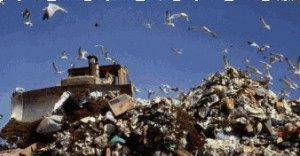Waste not, want not
 At this time of over indulgence at the table, it is timely to write about the waste of food within and across the agri-business sector. Simply stated, waste is an inefficiency and many businesses are trying to reduce or eliminate waste as a cost saving measure. There is only so much a single business can do however, as many of the processes and systems within the industry are inherently wasteful, as if by design. This is no one’s fault rather the result of building a system around individual or unit efficiency with no consideration for the collective impact.
At this time of over indulgence at the table, it is timely to write about the waste of food within and across the agri-business sector. Simply stated, waste is an inefficiency and many businesses are trying to reduce or eliminate waste as a cost saving measure. There is only so much a single business can do however, as many of the processes and systems within the industry are inherently wasteful, as if by design. This is no one’s fault rather the result of building a system around individual or unit efficiency with no consideration for the collective impact.
To make real reductions across an industry businesses must start working together to eliminate system waste. Clusters of business might consider what is called ‘industrial symbiosis’ where the waste from one business becomes the raw material for another. Think of a forest where the fallen tree is not wasted but becomes the food for countless others over time and how specific mushrooms flourish under certain trees and in turn nourish the tree’s roots. Within industry waste is distinguishable from by-products and there are some really encouraging examples of by-product use as animal feedstuff, bio-plastics, pharmaceuticals etc.
For smaller companies the quantities of waste and by-products generated often inhibits the economics of re-use in for example, bio-energy production and the cost of collection can exceed the economic return involved. However, the recent drive towards sustainability has focussed minds and there are now examples of innovative solutions. Faster action composting bins can efficiently deal with smaller quantities on production sites. New software technologies can eliminate wasteful procurement habits and reduce inefficient outputs. More frequent collections can be planned with local authorities keen to promote wider community involvement. Awareness of the ‘local action’ issues by all stakeholders can lead to collaborative actions displaying collective intelligence and resulting in benefits for all. The challenge of reducing the 90 million tonnes of food waste Europe produces annually is daunting but full of opportunities.

